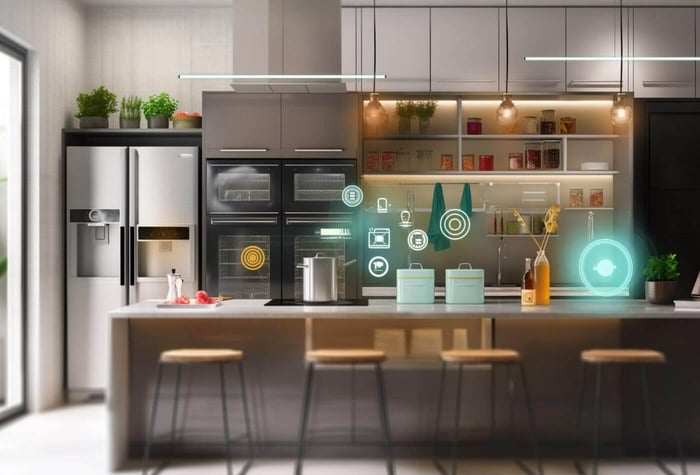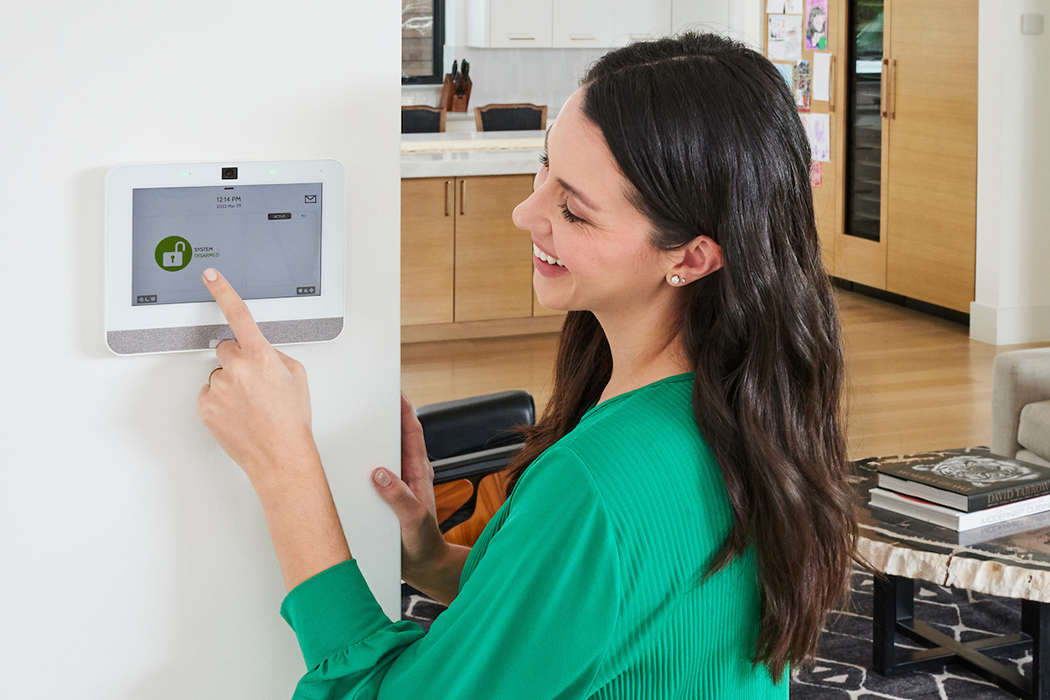
AI-based Solutions for Green Homes: Revolutionizing Sustainability
Share
As the world grapples with the pressing challenges of climate change and environmental degradation, the quest for sustainable living has never been more urgent. Among the innovative approaches spearheading this transformation are AI-based solutions for green homes. These technologies promise not only to make our homes more eco-friendly but also to redefine the very essence of modern living.
In recent years, the rise of artificial intelligence (AI) has significantly influenced various sectors, from healthcare to finance. Now, as the demand for sustainable housing grows, AI is playing an integral role in optimizing energy consumption, reducing waste, and enhancing the overall efficiency of homes. By integrating AI into home systems, homeowners can achieve a seamless blend of comfort and sustainability.

The Role of AI in Energy Management
One of the most impactful applications of AI in green homes is in energy management. Traditional energy systems often lead to wastage, but AI-driven solutions can dynamically adjust energy consumption based on real-time data. This not only minimizes waste but also ensures that energy is used where and when it is truly needed. For instance, AI algorithms can predict peak energy usage times and adjust heating or cooling systems accordingly, optimizing energy efficiency and significantly reducing utility bills.
Moreover, AI can integrate with renewable energy sources like solar panels. By analyzing weather patterns and consumption habits, AI can determine the optimal times for energy storage and usage. This integration ensures that homes are not only energy-efficient but also contribute to a sustainable grid system. For those interested in delving deeper into this topic, our article on optimizing smart homes with AI offers valuable insights.
Enhancing Sustainability Through Smart Appliances
Incorporating AI-driven smart appliances into green homes is another game-changer. These appliances can learn from user habits and adjust their functionality to promote sustainability. For example, smart refrigerators can suggest recipes based on the perishables available, minimizing food waste. Similarly, AI-powered washing machines can recommend optimal washing cycles based on load size and fabric type, saving water and energy.
Additionally, smart lighting systems equipped with AI can adjust brightness levels based on natural light availability and occupancy, further conserving energy. By transforming everyday appliances into intelligent, eco-friendly devices, AI empowers homeowners to make environmentally conscious decisions effortlessly.
AI and Home Automation for Green Living
Home automation, powered by AI, is revolutionizing the way we interact with our living spaces. By integrating AI with IoT devices, homeowners can create a cohesive ecosystem that responds intuitively to their needs. This not only enhances convenience but also promotes sustainability. For those seeking to explore this synergy further, our detailed discussion on AI and IoT for efficient home automation is a must-read.
Smart thermostats, for instance, can learn a household's schedule and temperature preferences, adjusting settings automatically to save energy. Similarly, AI-enabled security systems can optimize power usage by analyzing occupancy patterns and adjusting surveillance operations accordingly. By automating these processes, AI reduces the environmental footprint of homes while enhancing security and comfort.
Data Analytics: The Backbone of AI-Driven Green Homes
At the core of AI-based solutions for green homes lies data analytics. By collecting and analyzing vast amounts of data, AI systems can make informed decisions that optimize energy usage and enhance sustainability. This data-driven approach allows for precise monitoring and control of home energy systems, ensuring that resources are used efficiently.
Furthermore, data analytics enables predictive maintenance, allowing homeowners to address potential issues before they escalate. This proactive approach not only extends the lifespan of appliances but also reduces waste and promotes sustainability. For a closer look at how data analytics is transforming sustainable living, our article on improving sustainability through data analytics provides valuable insights.
Innovations in Green Construction
Apart from enhancing existing homes, AI is also playing a pivotal role in green construction. By leveraging AI, architects and builders can design homes that are not only aesthetically pleasing but also environmentally friendly. AI can simulate various building materials and designs to assess their environmental impact, ensuring that the final product aligns with sustainable standards.
AI-driven construction technologies are also optimizing resource allocation, reducing waste during construction, and enhancing the overall efficiency of the building process. For those interested in the latest technologies used in green construction, this comprehensive guide on green construction technologies is highly recommended.
Challenges and Future Prospects
While the potential of AI-based solutions for green homes is immense, there are challenges to address. Data privacy concerns, the high cost of implementation, and the need for continuous advancements in AI technology pose hurdles. However, as technology evolves and becomes more accessible, these challenges are likely to diminish.
The future of green homes is promising, with AI at the forefront of sustainable innovation. As AI continues to evolve, it will unlock new possibilities for creating eco-friendly living spaces that not only benefit homeowners but also contribute to a healthier planet.

FAQs
What are AI-based solutions for green homes?
AI-based solutions for green homes refer to the integration of artificial intelligence technologies to enhance energy efficiency, sustainability, and overall functionality of residential spaces. These solutions include smart appliances, energy management systems, and home automation technologies.
How does AI improve energy efficiency in homes?
AI improves energy efficiency by analyzing real-time data to optimize energy consumption. It can predict peak usage times, integrate with renewable energy sources, and automate systems like heating and cooling to reduce waste and lower utility costs.
Are AI-based green homes cost-effective?
While the initial investment for AI-based green homes may be higher, the long-term benefits, including reduced energy costs and increased sustainability, make them cost-effective. As technology advances and becomes more widespread, the cost of implementation is expected to decrease.
